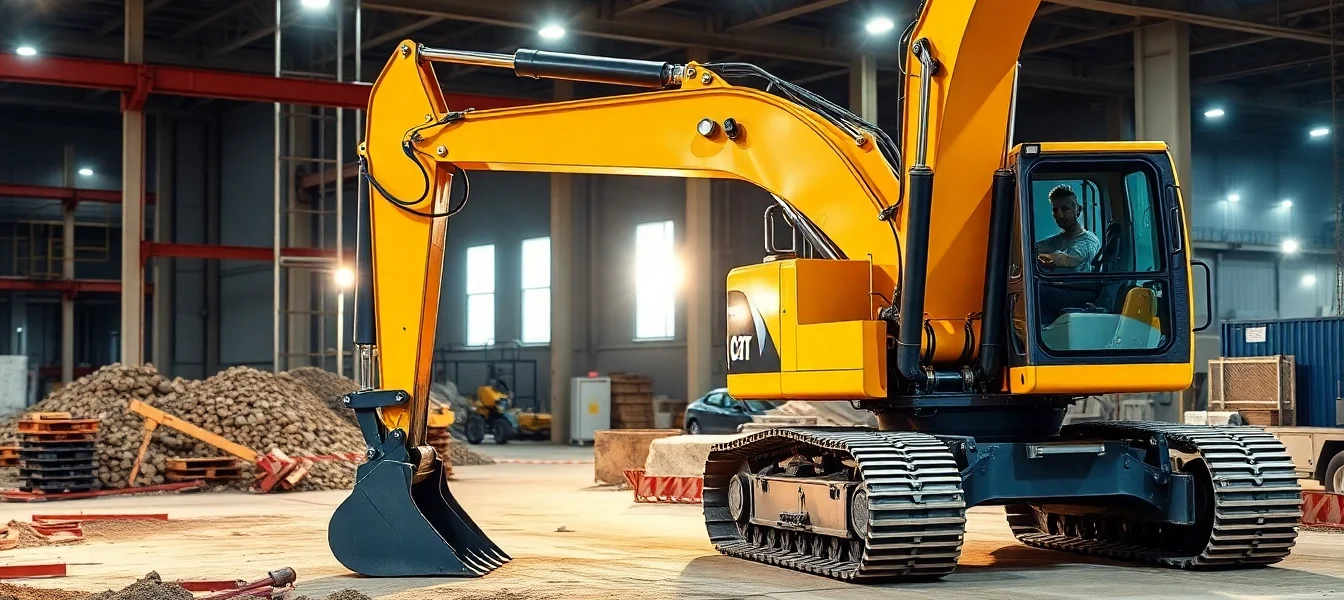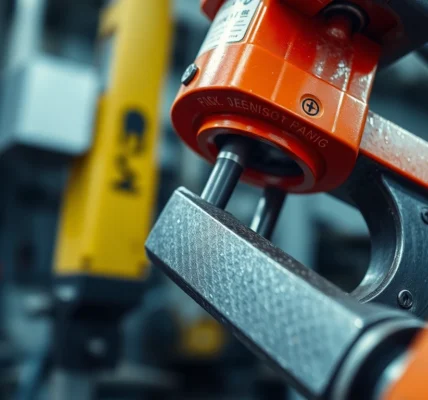Top Excavator Rental Solutions in the UK for Efficient Construction Projects
Understanding Excavator Rental: The Basics and Benefits
In the dynamic world of construction and excavation, having access to the right equipment can significantly influence project efficiency, cost-effectiveness, and overall success. Among the essential heavy machinery utilized across various projects is the excavator. Whether you’re working on a small residential site or a large commercial development, excavator rental offers a flexible, economical solution to meet your specific needs. By choosing the right excavator for your project, and partnering with a reputable rental provider, you ensure optimal performance and safety standards are maintained. In this comprehensive guide, we will explore the fundamentals of excavator rental, examine the advantages it offers, and provide practical insights into selecting, operating, and maximising the benefits of this vital construction resource.
For those looking to streamline their construction projects or undertake DIY excavation tasks efficiently, understanding the ins and outs of excavator rental is crucial. To get started, consider exploring options at Excavator rental to find the best equipment suited to your project size and scope.
What is Excavator Rental and How Does It Work?
Defining Excavator Rental
Excavator rental involves leasing heavy-duty excavating machinery from specialized rental companies for a specific period and project. It provides access to a wide range of equipment, including mini, micro, midi, and large-scale excavators, without the need for a costly upfront purchase. Rental agreements typically include terms regarding usage duration, maintenance responsibilities, insurance, and delivery options, which vary based on the provider and the equipment type.
The Rental Process
Engaging in excavator rental generally follows a straightforward process:
- Assessment of project requirements: size, soil conditions, access constraints, and project timeline.
- Selecting the appropriate excavator type and specifications.
- Requesting rental quotes and comparing options based on price, equipment features, and rental terms.
- Booking the equipment, often with coordination for delivery and pickup.
- Operator training and safety briefing (if operating by the contractor or with a driver included).
- Using the equipment as per agreed terms, with ongoing support or repairs covered by the rental provider if covered under warranty or insurance.
How It Works: Key Components
The core elements of excavator rental include:
- Rental Agreement: Defines the duration, cost, maintenance responsibilities, and terms of use.
- Delivery & Pickup: Rental companies usually provide transportation, especially for larger machines, ensuring the equipment arrives ready for use.
- Operational Support: Options for skilled operators or driver-inclusive rentals.
- Maintenance & Insurance: Clarifications on who bears the responsibility for repairs and damages during the rental period.
Key Advantages of Renting Excavators for Construction
Cost Efficiency
One of the most compelling reasons for renting excavators is cost savings. Purchasing heavy machinery can involve substantial capital expenditure, ongoing maintenance costs, storage, and depreciation. Renting converts these fixed costs into predictable operational expenses, with flexible rental durations tailored to each project’s timeline. Additionally, rental providers often include maintenance and repairs in their packages, reducing unexpected costs significantly.
Access to a Wide Range of Equipment
Rental companies offer an extensive selection of excavators ranging from micro models suitable for tight urban sites to large-scale machines designed for heavy digging and lifting. This variety allows contractors and DIY enthusiasts to choose precisely the right equipment for their specific tasks, improving efficiency and reducing project delays.
Flexibility and Scalability
Rental agreements provide the flexibility to adjust equipment according to project demands. For example, a small site may initially require a mini excavator, but if the scope expands, larger machines can easily replace or be added without significant capital investment. This adaptability is invaluable for projects with changing specifications or budgets.
Latest Technology and Equipment Reliability
Rental providers typically maintain their fleets with the latest models featuring advanced technology, safety enhancements, and fuel efficiency. Regular maintenance ensures high reliability, reducing downtime and increasing productivity. Access to modern equipment also supports compliance with current safety standards and environmental regulations.
Reduced Administrative Burden
Renting shifts the responsibilities of maintenance, repairs, and compliance management away from the user to the rental company, simplifying project administration. This allows project managers and operators to focus on core tasks rather than equipment upkeep.
Environmentally Friendly Options
Many rental companies now offer environmentally friendly excavators, including electric models or those with reduced emissions, aligning with sustainability goals and reducing the project’s carbon footprint. This green approach is increasingly important in modern construction projects.
Types of Excavators Available for Rent
Mini and Micro Excavators
Designed for tight spaces and delicate tasks, mini excavators (typically 0.8 to 1.5 tonnes) are popular among DIY enthusiasts and residential contractors. Their compact size (often less than 1 meter wide) allows access to restricted areas such as gardens or urban sites. For example, a micro digger can easily maneuver through narrow doorways, making it perfect for indoor or backyard projects.
Midi Excavators
Mid-sized models (around 1.5 to 6 tonnes) are versatile, suitable for both small and medium-sized construction sites. They combine power with maneuverability and are often equipped with features like adjustable tracks, advanced hydraulics, and operator comfort enhancements.
Standard and Large Excavators
Heavy-duty excavators (from 6 tonnes up to 80 tonnes) are ideal for large-scale excavation, mining, and infrastructure projects. Features may include long booms, various attachment compatibility, and enhanced stability systems to handle demanding tasks efficiently.
Specialized Excavators
Some rental providers also offer specialized equipment such as trenchers, demolition diggers, or excavators with mounted breakers. These tools expand the scope of work and provide tailored solutions for complex tasks.
Choosing the Right Excavator Rental Service
Factors to Consider When Selecting a Rental Provider
Choosing a reliable rental company is critical for project success. Consider the following factors:
- Equipment Quality and Range: Ensure the provider maintains a modern fleet with a variety of models suitable for your needs.
- Reputation and Reviews: Check customer feedback and industry reputation to gauge service quality and reliability.
- Availability and Delivery Options: Confirm the ability to deliver the equipment when and where needed, especially for urgent projects.
- Technical Support and Customer Service: Opt for providers offering prompt assistance, operational guidance, and emergency repairs.
- Insurance and Licensing: Verify the provider’s compliance with local regulations and their insurance coverage to safeguard against accidents and damages.
Comparing Pricing and Equipment Options
Cost considerations go beyond rental rates—look for transparency in pricing, including delivery fees, fuel costs, and potential extra charges. Also, assess the value offered by different providers in terms of equipment quality, maintenance, and support. Request detailed quotations and clarify rental durations, especially for long-term projects where discounts may apply.
Customer Support and Rental Terms
Good customer support enhances rental experience — ensure the provider offers clear terms, flexible hire periods, and responsive communication. Clear rental agreements should outline responsibilities, maintenance, insurance, and procedures for troubleshooting or emergencies.
How to Maximize Efficiency with Your Excavator Rental
Planning Your Project for Optimal Equipment Use
Thorough planning is vital. Assess the scope, soil conditions, access constraints, and environmental factors beforehand. Develop detailed operation schedules to maximize equipment uptime. Coordinating delivery times and personnel schedules reduces idle periods and improves productivity.
Best Practices for Operating and Maintaining Rentals
Proper operation includes following manufacturer guidelines, using appropriate attachments, and adhering to safety protocols. Regularly inspect the equipment for wear and tear, lubricate moving parts, and keep engines clean. Many rental companies provide basic operational training or instruction manuals, which should be diligently followed.
Safety Guidelines and Compliance Standards
Safety is paramount. Operators must wear protective gear, understand the site’s hazards, and follow standard operating procedures. Adequate signage, barrier setup, and compliance with local health and safety regulations are essential. Ensuring all operators are trained reduces the risk of accidents and liability issues.
Case Studies: Successful Excavator Rental Projects
Small Scale Residential Site Excavations
Homeowners undertaking garden landscaping or extension works benefit significantly from mini excavators. For instance, a homeowner in Bristol rented a micro digger to excavate foundations for a new patio, completing the project swiftly without disruption or heavy machinery costs. Proper planning and choosing the right size equipment minimized site disturbance and ensured safety.
Large Commercial Construction Examples
In urban development, large-scale excavators are pivotal. A construction firm in London rented several excavators for a mixed-use development, improving excavation speed and efficiency. Renting provided flexibility to scale equipment according to phase requirements, significantly reducing project lead times and costs.
DIY Projects Using Micro and Mini Excavators
DIY enthusiasts have increasingly adopted excavator rental for personal projects. For example, restoring a rural property involved renting a small excavator to dig trenches, clear land, and prepare foundations. Use of rented equipment allowed amateurs to execute professional-grade work safely and affordably with operator training and support.
Future Trends in Excavator Rental and Construction Equipment
Technological Innovations and Smart Machinery
The industry is witnessing a surge in smart excavators equipped with IoT connectivity, GPS tracking, and automation controls. These features enhance precision, operational efficiency, and reduce operator fatigue. For instance, telematics facilitate real-time maintenance alerts, ensuring equipment remains in optimal condition.
Environmental Considerations and Green Excavators
Environmental sustainability is shaping future equipment design. Electric excavators, hybrid models, and machines with reduced emissions are becoming more prevalent. Rental companies are investing in green alternatives, allowing projects to meet stricter environmental standards and reduce carbon footprint.
Taking Advantage of Rental Flexibility for Growing Business Needs
As construction workloads fluctuate, rental models supporting flexible agreements become indispensable. Short-term rentals, seasonal contracts, and on-demand scaling offer businesses the ability to adapt swiftly to market conditions, optimize resource utilization, and control costs effectively. The rise of modular and plug-and-play machinery fosters innovation and efficiency in project delivery.

